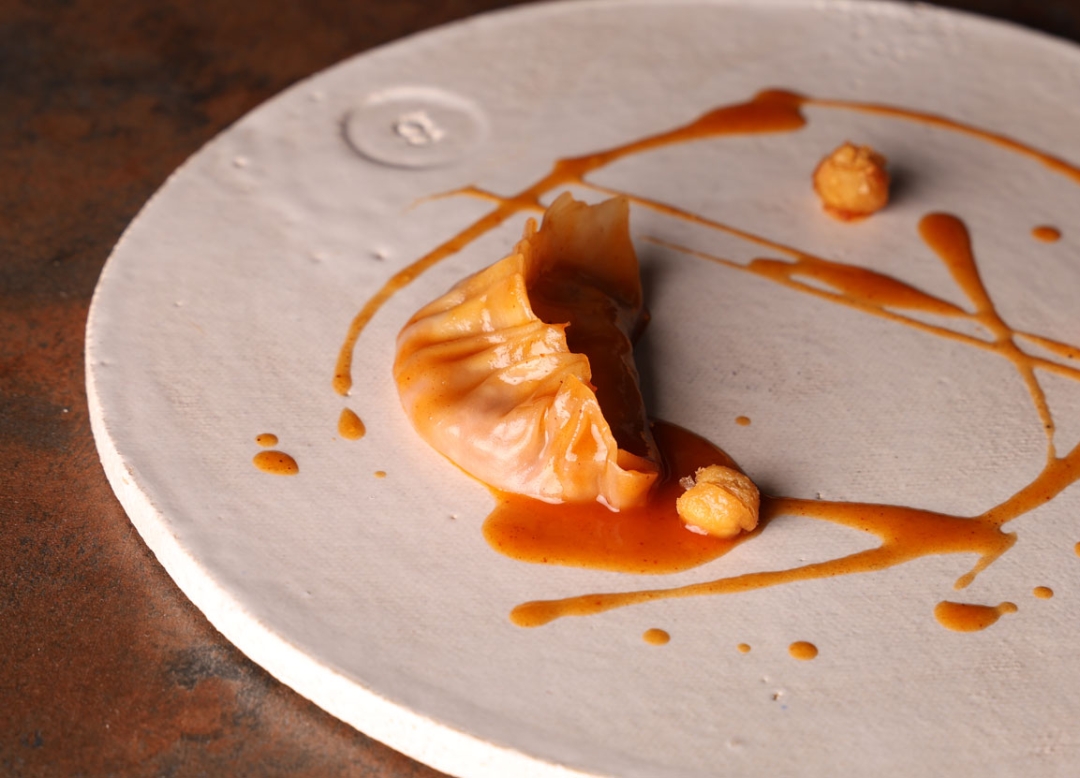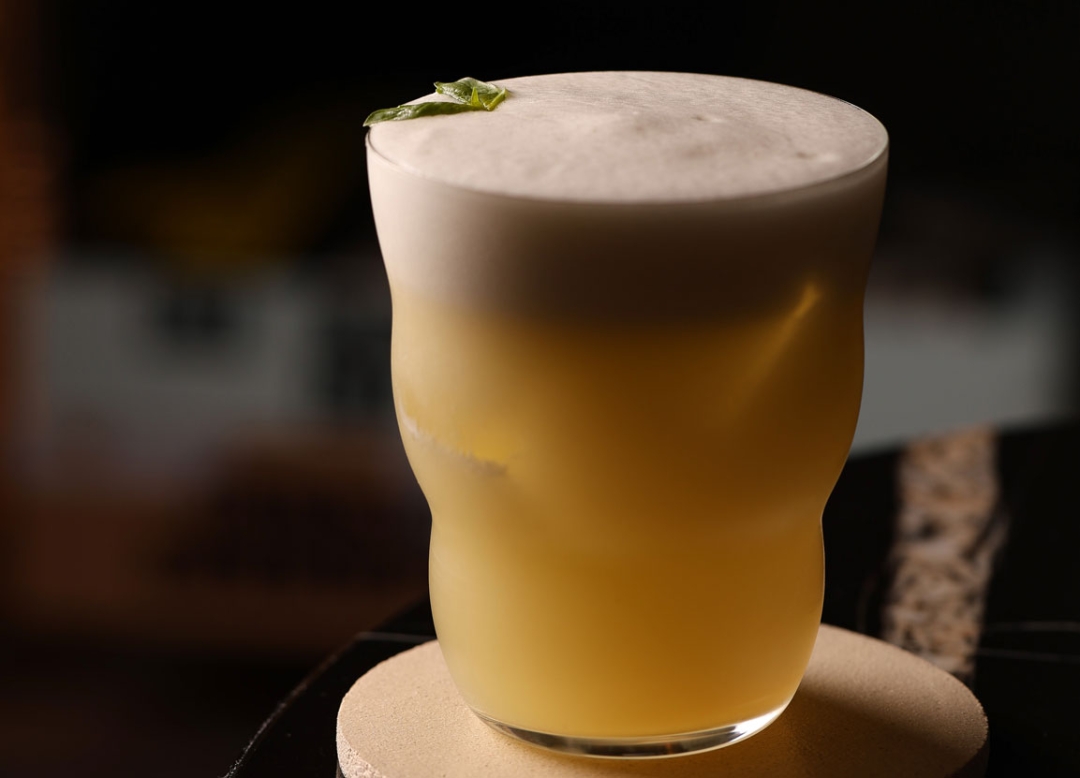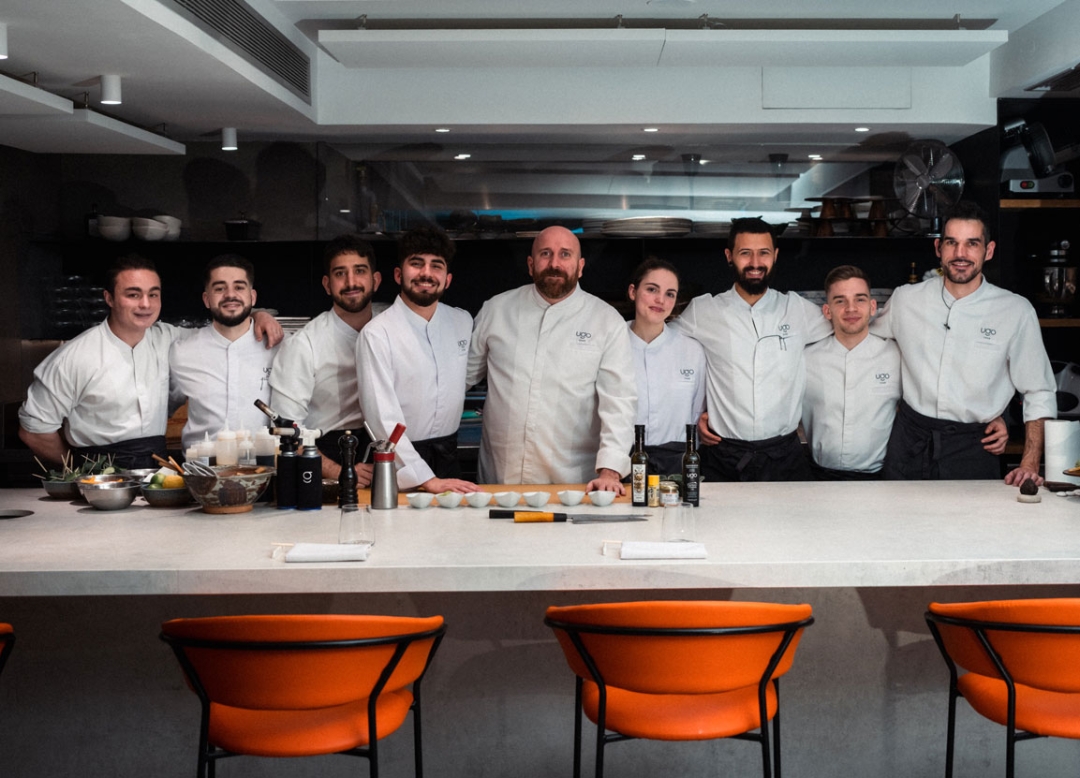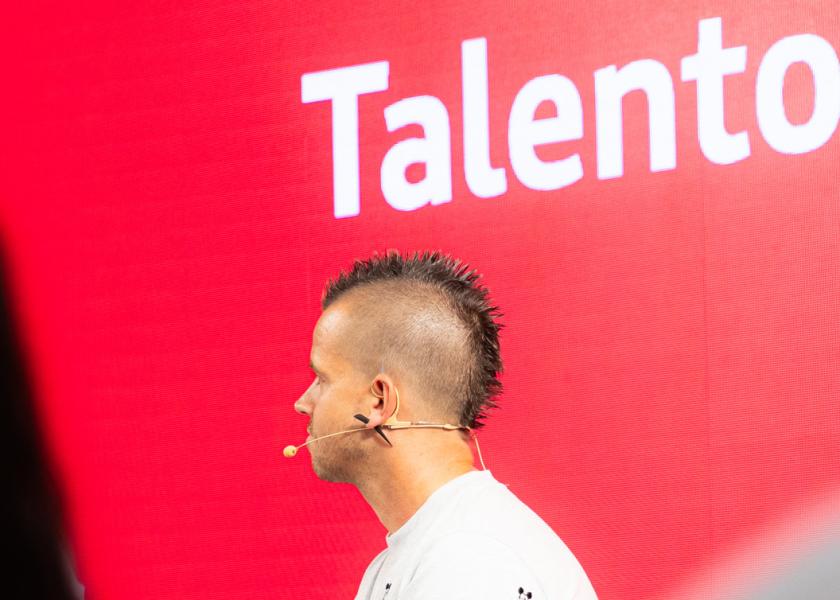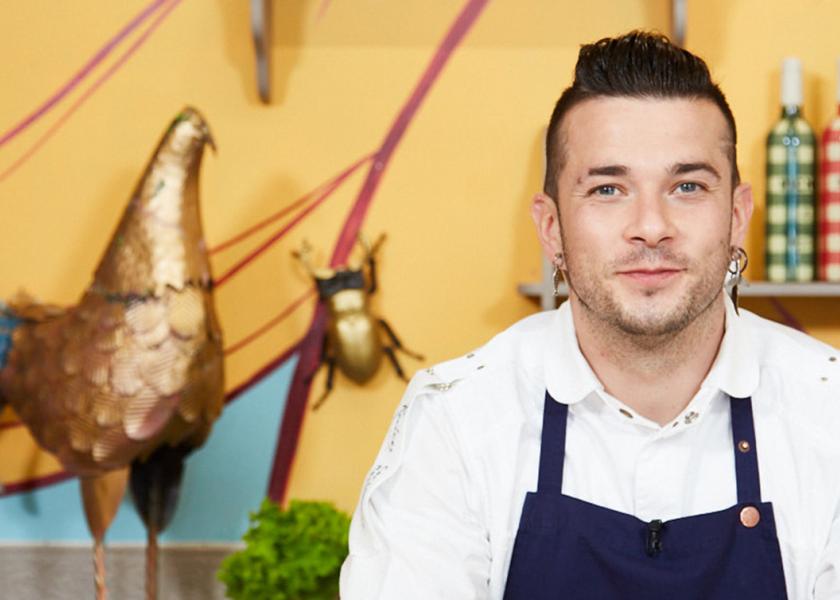Hugo Muñoz
Japanese inspiration
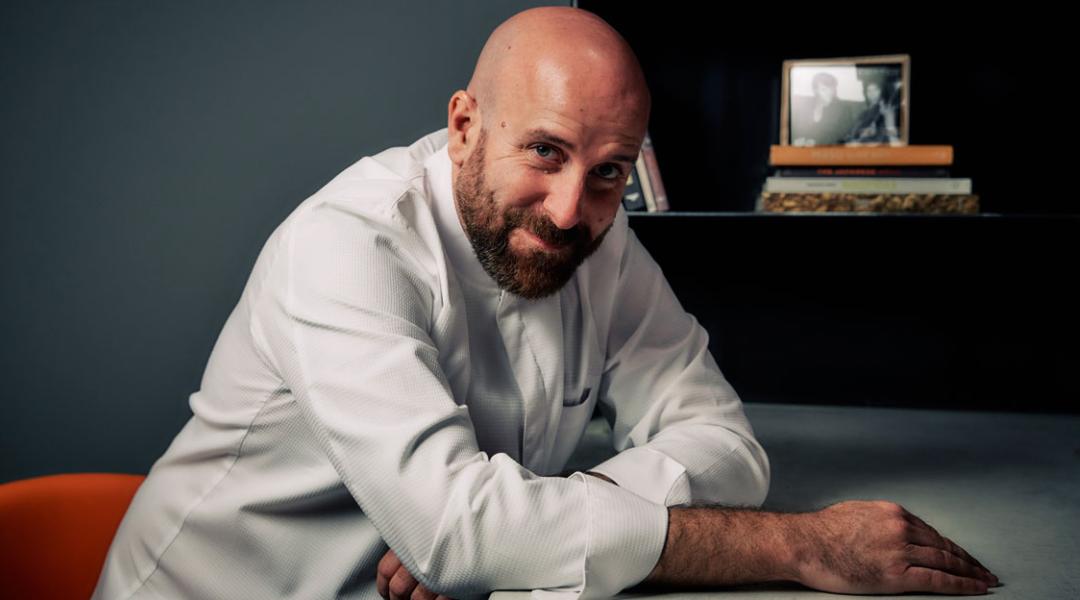
On the 27th of October, the first flight on the new Iberia Madrid-Tokyo route took off. Onboard was chef Hugo Muñoz, a passionate advocate of Japanese-Spanish cuisine, who prepared an incredibly special dish for passengers. At the head of the restaurant Ugo Chan, this Japanese cuisine enthusiast, who admires its ability to transcend everyday life, has already won a Michelin star and two Repsol Suns.
“My grandfather used to work in the furniture sector and made business deals with Japan in the 1980s and 1990s. He used to travel there a lot and when he came home, he used to share his experiences and bring us gifts, like masks from the Kabubi theatre.” You can picture a young Hugo Muñoz (Madrid, 1982) attentively listening to the stories of his grandfather Emilio, which awoke in him a fascination for Japan which has only grown over time. “Spanish and Japanese people are on opposite ends of the spectrum in terms of character, and I think that’s why we develop a mutual fascination. They say opposites attract,” argues Hugo. This attraction was such that he decided to put it into practice in the kitchen, by blending the best Japanese gastronomy with the best authentically Spanish cuisine. Therefore, Hugo was the ideal person to surprise the passengers with his culinary delights on the maiden flight reopening Iberia’s Madrid-Tokyo route on the 27th of October. A challenge the head chef at Ugo Chan restaurant took on with passion, the first word that comes to mind when we ask him about talent. “ You have to love what you do for inspiration to find you working —he assures us—. Although I’d also say that talent, in such a homogenous world as ours, lies in seeing things differently; in that person that finds something where others can’t see anything.”
Your passion for gastronomy came late; when did you realise this was your path?
When I was 18, I took my university entrance exams and I loved science, so I chose engineering. But I soon realised that I wasn’t passionate about that. What I really loved was hosting, taking care of people when they came home and making them feel at home around the dinner table. At the time I didn’t know how to cook much, but I understood that was my path.
Even now that you’re a well-known chef, you always highlight your work as a host; why?
The restaurant is my home, and I open its doors to my customers. The devil is in the details and more so in such a competitive city as Madrid, so the more you do inside and outside of the kitchen, the better. For me, how we welcome and say farewell to customers, or what wine or cocktail list we can offer them, is very important. I think a lot about the full experience from the customer’s perspective. One of the keys for any chef is to eat out a lot, at all kinds of restaurants, to understand how a customer feels from the minute they arrive to the moment they leave, and how we can touch their soul.
“One of the keys for any chef is to eat out a lot, at all kinds of restaurants, to understand how a customer feels”
At Ugo Chan you combine Spanish and Japanese cuisine. Was this a spark of inspiration or a slow-cooked decision?
When I was given the Breakout Chef Award of the Community of Madrid in 2016, I was already doing this type of cooking, but it was a process. My first contact with Japanese cuisine, which I already admired, happened at Zuma in London. Then I continued training in Kabuki or Shiku. This is how I got into this fascinating gastronomy and now I feel really comfortable making dishes with that connection to Japan.
As a fan of Japanese gastronomy, what do you love the most about it?
Beyond aspects like its big-ticket items, I admire its ability to transcend everyday life. Anything that flies under the radar for us, like making a sandwich or frying a fillet, they elevate it to perfection. They’re able to dedicate their life to it and that’s what I love the most.
You took part in the maiden flight on the Iberia Madrid-Tokyo route; what did this mean to you and how did you amaze passengers during the flight?
I’ve finally done real haute cuisine, at 38,000 feet (laughs). Finding this connection with Iberia and being able to offer passengers a unique experience has been incredible: we prepared an ox tartar with a smoked Delta del Ebro eel gelée, creamy cauliflower and a dash of caviar. I finished off the dish in front of the passengers, which allowed me to present it, and it was so well received. It was great fun, and I was overwhelmed by their applause. I also loved to share the experience with the entire Iberia team, who made things easy in such a tight space. I was playing away, and they were exceedingly kind to me.
“Travelling is inspiring and enriching for a chef. I always try to go to the best restaurants, but also to the simplest as well”
What would you recommend a food-loving tourist do during a trip to Tokyo?
You can enjoy an amazingly simple meal at an izakaya at the Ueno neighbourhood, where you can go without a reservation and eat fantastically, or make a reservation at a yakiniku, where they grill Kobe beef, if you’re looking for something more sophisticated. You can also visit a sushi bar or a kaiten sushi, where you’ll have great fun. I recommend looking for different experiences. During the trip with Iberia, we ate in Hakkoku, and it was one of the best gastronomic experiences of my life, because I was going with friends. Who you’re with is just as important as where you go.
What role does travel play in a chef’s training?
I only started travelling recently, since I opened the restaurant three years ago. Travelling is inspiring and enriching for a chef, you learn every day from the most unexpected people. I always try to go to the best restaurants, but also to the simplest as well, the ones that are on the street. Soon I’ll travel to Perú and eat at a magnificent restaurant, Maido, which blends local and Japanese cuisine.
“I’m touched by the respect and affection people around the world feel for Spanish chefs. It makes me proud”
You always highlight your team’s work; how important is it to surround yourself with talent in the world of cuisine?
When Bocuse was asked: “Who cooks at your restaurant when you’re not there?”, he always replied: “The same person who cooks when I am there.” The most important thing at a restaurant is having a solid team of chefs, sommeliers, waiters... All those people add up and make the restaurant stand out. They also allow me to travel, like this trip to Japan, and I come back with a notebook full of ideas. When I get back, I’m sure they think: “What will the boss come up with this time?” (laughs). The poor things tremble a little because I change lots of things, but in the end those ideas turn into brilliant dishes to offer to our customers.
Spanish cuisine is very well regarded abroad, also in Japan. As someone who’s immersed in this world, how much talent is there in this country?
So much. Spain is having a moment thanks to the chefs that came before, like Ferran Adrià or Joan Roca, among others. Now, us new chefs are esteemed by countries like Japan because they did the groundwork. When Spanish chefs appear abroad, our work garners a lot of interest. I’m touched by the respect and affection people around the world feel for us. I feel immensely proud.
